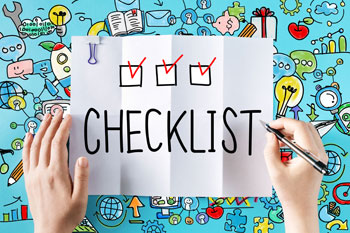Get your free consultation today!
Share with your Colleagues
Categories
ROI Calculator
Moonstone Interactive is the only San Francisco Bay Area web design firm and Internet Marketing expert that offers a free online ROI Calculator
Author: Steve Herz

SEO optimizes your website to elevate visibility and ranking in search engine results pages (SERPs). Implementing effective SEO strategies can drive more organic traffic to your website and ultimately increase your business's online success.
For those using WordPress CMS, mastering SEO for WordPress can significantly elevate your site's online presence. This comprehensive guide explores strategies to enhance your WordPress site's SEO, ensuring better rankings and a wider reach.
The Importance of SEO for WordPress Sites
Understanding SEO for WordPress is crucial in today’s digital world. It's more than a buzzword; it's an essential strategy for any website aiming for visibility in search engine results. WordPress CMS is renowned for its SEO-friendly features, but grasping the basics of SEO is vital for anyone managing a WordPress site. A well-optimized WordPress website can dramatically increase your ranking in search engine results, attracting more traffic and, ultimately, achieving your online objectives. SEO for WordPress involves a combination of on-page and off-page strategies tailored to the platform's unique features and capabilities. By aligning your content and technical SEO efforts with how WordPress functions, you can effectively improve your visibility and performance in search engine rankings.
Optimizing Your WordPress Site Structure
Creating a user-friendly site structure is crucial not only for user experience but also for search engine crawlers. Ensuring your site structure is intuitive, logical, and easy to navigate when using WordPress CMS is essential. The site structure includes hierarchically organizing content, using categories and tags effectively, and designing a navigation menu that guides visitors to your most important pages. The role of citations in SEO is also significant. Opt for a clean URL structure that includes relevant keywords and accurately describes the page content. The URL helps search engines understand your pages better and improves the user experience. Remember, a well-structured website encourages extended visits and deeper engagement, both positive signals to search engines.
Keyword Research and Content Optimization
Maximizing the potential of SEO for WordPress begins with thorough keyword research. Identifying the right target keywords for your niche is essential. Use various keyword research tools to discover what your target audience is searching for. Once you've identified these keywords, they should be naturally integrated into your WordPress content. Keyword integration includes using them in titles, headings, meta descriptions, and throughout your website’s content in a relevant and engaging way. WordPress content optimization is not just about inserting keywords; it's about creating valuable, informative, and exciting content that attracts and compels your audience to interact with your site.
Leveraging WordPress SEO Plugins and Tools
The strength of WordPress CMS lies in its vast array of SEO plugins and tools. An in-depth overview of essential SEO plugins might include tools like Yoast SEO or All in One SEO Pack. These tools assist in optimizing your content and improving your site’s overall SEO health. Using these SEO tools effectively in WordPress familiarizes you with their features and elevates your understanding of generating steps, performing readability checks, and conducting on-page SEO analysis. These tools and insights can significantly enhance your website's search engine performance.
Improving Site Speed and Mobile Responsiveness
In SEO for WordPress, site speed and mobile responsiveness are increasingly important. Techniques to enhance website loading speed include optimizing images, employing a content delivery network (CDN), and minimizing resource-intensive themes and plugins. Furthermore, ensuring that your WordPress site is mobile-friendly is crucial. Mobile usage is growing every year. And search engines elevate mobile-friendly websites in their rankings. A mobile-responsive design improves user experience and improves your site's SEO performance.
Building Quality Backlinks and Social Signals
Building solid backlinks is integral to any SEO strategy, including SEO for WordPress. Practical strategies for acquiring backlinks include creating high-quality, shareable content, engaging in guest blogging, and participating in digital PR activities. The impact of social media on SEO, while indirect, can be significant. Social Media engagement can attract traffic to your WordPress site, enhancing its visibility, authority, and even its backlink profile. Remember, high-quality backlinks and robust social media engagement indicate that your content is helpful and reliable to the search engines.
Mastering SEO for WordPress involves a comprehensive approach that touches on every aspect of your website: its structure, content, performance, and social media engagement. Implementing these strategies within your WordPress CMS enhances your site's visibility and ensures a superior user experience, which is central to long-term SEO success. Remember, SEO continues to evolve. Stay updated on new trends and algorithm changes to maintain and improve your rankings.
Don’t worry if this sounds like extra work and effort to keep up with the evolving digital market. Moonstone can help. Request a Free Consultation.


